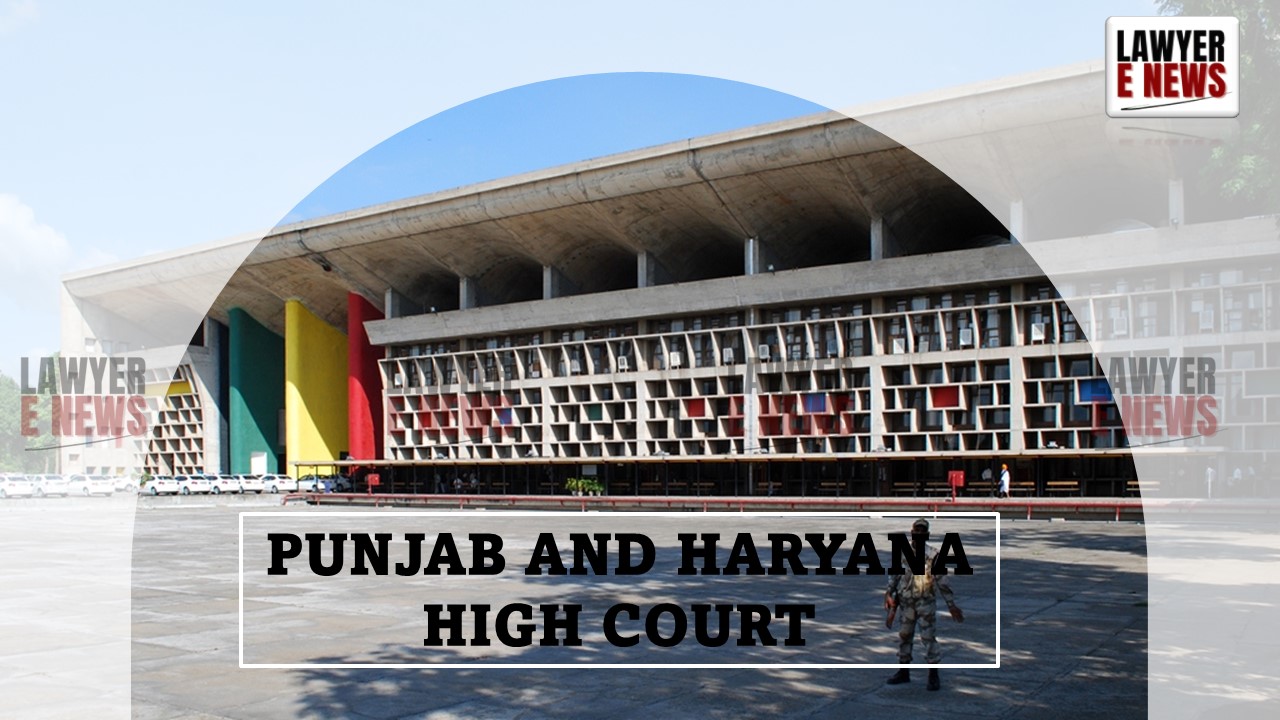-
by Admin
15 February 2026 5:35 AM



The Punjab and Haryana High Court, in a judgment delivered by Justice Anoop Chitkara, granted bail to Monu Dabas and Sonu Dabas, two of the accused in a significant multi-crore heist case, citing the principle of parity with similarly placed co-accused. The court emphasized that prolonged pre-trial incarceration could lead to irreversible injustice and recognized the petitioners' right to bail after more than a year in custody.
The case originates from an FIR filed on August 21, 2021, at the Kherki Daula Police Station in Gurugram, Haryana. The FIR was lodged after a substantial sum of money, approximately ₹50 lakhs, was reported stolen from the office of Alpha G Corp. Management Services Private Limited. Initial investigations led to the arrest of multiple suspects, including employees and external associates, who were allegedly involved in the theft and subsequent laundering of the stolen money.
Over time, the scope of the investigation expanded significantly, revealing a large-scale conspiracy involving a network of criminals, including known gangsters, police officials, and businessmen. The accused were charged under various sections of the Indian Penal Code, Arms Act, and the Prevention of Corruption Act. The petitioners, Monu Dabas and Sonu Dabas, were implicated in the case after the main accused, Vikas Lagarpuria, named them in his disclosure statement.
The primary argument for granting bail to the petitioners was based on the principle of parity. The court noted that several co-accused in the case, who were similarly situated in terms of allegations and evidence, had already been granted bail. Justice Chitkara observed, "Without commenting on the merits of the case, the petitioners make a case for bail. This order shall come into force from the time it is uploaded on this Court's official webpage."
The court acknowledged the significant period the petitioners had already spent in custody—over a year and three months—and recognized that further pre-trial incarceration could lead to irreversible injustice to the petitioners and their families. The court, however, made it clear that this decision was made without prejudice to the trial's outcome, which would consider the merits of the case.
The court imposed several stringent conditions for granting bail, emphasizing the need to balance the accused's liberty with the protection of victims and witnesses. The conditions included restrictions on the petitioners' movements, prohibition from entering the victim’s property or workplace, and the surrender of any firearms. The court underscored that these conditions were necessary to ensure that the petitioners do not influence the witnesses or repeat the offense.
Justice Chitkara’s judgment reflected a careful balance between the rights of the accused and the need for a fair trial. The court referenced several precedents to justify the imposition of stringent bail conditions, including the Supreme Court’s judgment in Vikram Singh v. Central Bureau of Investigation and Aparna Bhatt v. The State of Madhya Pradesh, which support protective measures for victims and witnesses during ongoing trials.
The court also referred to the necessity of bail conditions having a nexus to the purpose they serve, as articulated in Mohammed Zubair v. State of NCT of Delhi, ensuring that the conditions imposed were both proportional and reasonable in light of the circumstances.
The High Court's decision to grant bail to Monu Dabas and Sonu Dabas reflects the judiciary’s nuanced approach to balancing the rights of the accused with the imperative of a fair trial. The ruling underscores the principle that prolonged pre-trial incarceration should not be punitive, particularly when co-accused in similar circumstances have been granted bail. This decision is likely to influence ongoing and future bail petitions in cases involving lengthy pre-trial detentions, particularly in complex, multi-accused scenarios.
Date of Decision: 30 August 2024
